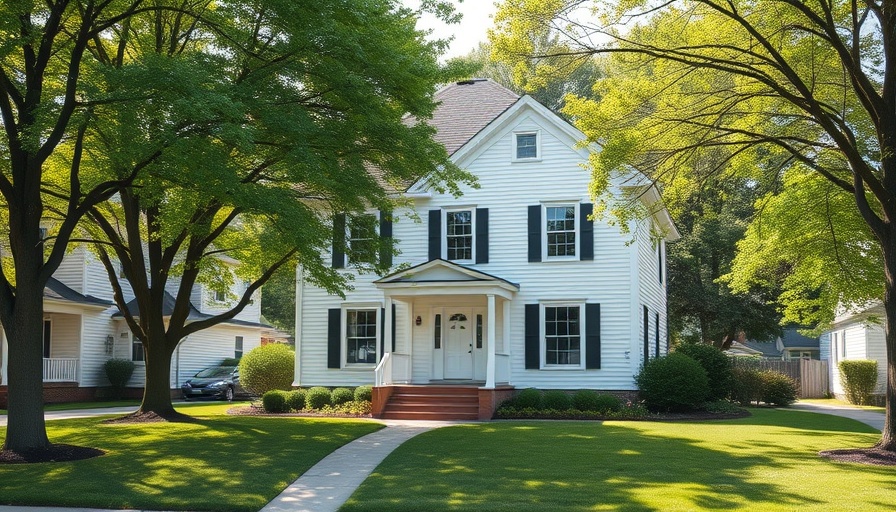
Is Selling Your Home the Right Move for Retirement?
As retirement approaches, many homeowners are faced with a significant question: should I sell my house and rent when I retire? This decision, while deeply personal, hinges on a variety of factors including financial needs, lifestyle preferences, and long-term goals. For retirees contemplating this transition, it's essential to weigh the pros and cons carefully.
The Financial Upside of Renting
The financial flexibility gained from selling a home can be transformative. Retirees often benefit from increased liquidity, allowing them to utilize home sale proceeds for various goals, including travel or additional leisure activities. With rental markets fluctuating, some regions offer rents that are more affordable than mortgage payments, especially as down payments and ownership costs can add up significantly.
Pros of Becoming a Renter in Retirement
- Low Maintenance Responsibilities: Renting typically means less hassle. On-site maintenance teams handle repairs and upkeep, which can be a significant relief for retirees looking to simplify their lives.
- Accessibility: Renters can choose properties designed for aging in place, like single-level condos or accessible apartments, negating the need for navigating stairs.
- Enhanced Flexibility: Renting provides the freedom to relocate without the long-term commitment associated with homeownership.
- Potential for Financial Gains: For some, selling their home can free up equity for retirement funding, alleviating long-term financial pressures.
Weighing the Risks of Renting
However, there are drawbacks to consider. Rent can be higher than mortgage payments, especially in areas with competitive rental markets. Moreover, as tenants, retirees might feel a lack of stability since lease agreements can change with market demands.
Perspective from Real Estate Markets
Real estate websites, such as Zillow, Redfin, and Trulia, offer valuable insights into housing trends and rental opportunities. Understanding local real estate markets is crucial; retirees should analyze current trends in property values and rental properties near potential retirement locations. Such analysis can provide clarity on whether renting will indeed be less financially burdensome than retaining homeownership.
Creating a Long-Term Plan
Before making this significant leap, retirees should craft a comprehensive retirement plan. This includes evaluating:
- Future income sources
- Health care costs
- Lifestyle changes
By meticulously detailing expected costs and potential rent versus ownership expenditures, individuals can gain clearer insights into their financial future.
Finding the Right Property: Tools and Resources
For prospective renters, navigating the sea of rental listings can be overwhelming. Utilizing online platforms, including MLS listings and real estate apps, can simplify house hunting. Engage with real estate agents to discover properties that align with personal needs and financial capacities.
Final Thoughts: Making the Call
Ultimately, the decision to sell your home and rent during retirement is deeply personal and must align with one’s comfort levels, financial needs, and lifestyle choices. As you stand at this pivotal crossroad, take time to evaluate all options available, armed with the right tools and insights. After all, your golden years should be lived to the fullest!
 Add Row
Add Row  Add
Add 




Write A Comment